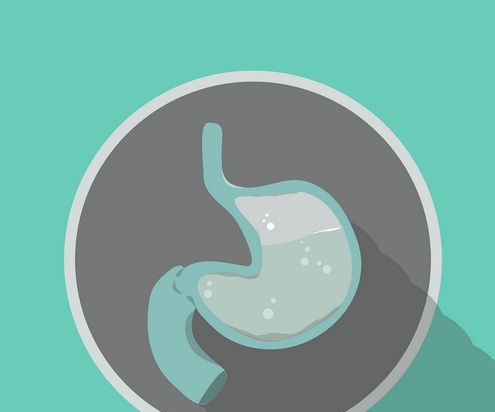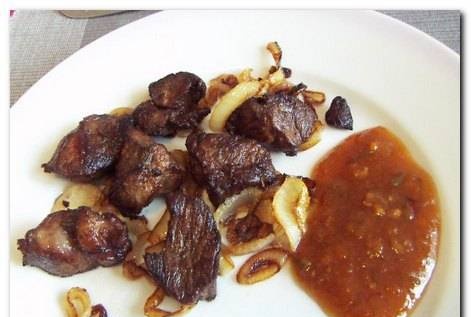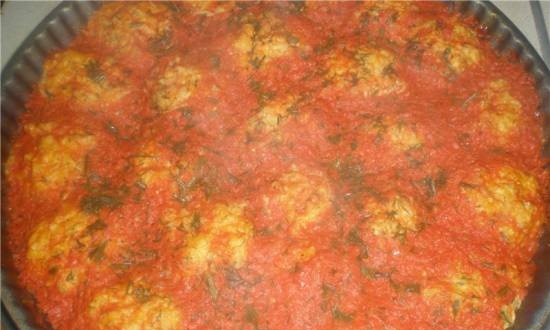Gastritis |
|
Thus, gastritis, like any disease, is not only a local lesion of an organ, but also a complex painful process associated with damage to the functions of the whole organism, especially its nervous system. The onset and development of gastritis is associated with a variety of factors of the external and internal (i.e., the organism itself) environment. Disease-causing causes can act directly on the gastric mucosa, digestive glands and nervous apparatus. There can be a simultaneous effect on the stomach and on important regulatory centers. Another way is possible - dysfunction of the central nervous system, and from it - already the secondary development of a disease of the stomach or gastrointestinal tract. The form of gastritis depends on the nature, strength and duration of the stimulus (pathogenic cause) and on those disorders that occur in the stomach. Gastritis can be acute or chronic, focal or diffuse (diffuse), with increased or decreased acidity, ulcerative or polypous, etc. In addition, at different stages of the disease, the nature of the inflammatory phenomena can change. Acute gastritisAcute gastritis occurs when the stomach is irritated by various harmful substances that enter the bloodstream through food. The most common reason is the use of abundant, difficult to digest, fatty, spicy, too hot or cold food, poor quality foods, etc. The development of acute gastritis can be observed with the use of a number of foods (eggs, strawberries, crayfish, tomatoes, etc.) and medicinal substances ( iodine, bromine, sulfonamides, antibiotics), in relation to which there is an increased sensitivity. Often, gastritis is a consequence of certain diseases (various infections, appendicitis, etc.), burns, the action of ultraviolet rays, etc.
Signs of acute gastritis.Acute gastritis is often mild, with minor manifestations, but there are cases with severe local and general phenomena. Usually gastritis occurs suddenly, 6-12 or more hours after eating and is manifested by loss of appetite, unpleasant taste in the mouth, salivation, nausea and vomiting, as well as a feeling of fullness and heaviness in the epigastric region. Patients feel unwell, experience severe thirst due to the loss of a large amount of fluid during vomiting, complain of headache, dizziness. Sometimes painful cramps are observed in the calf and other skeletal muscles. The body temperature is increased. The tongue is coated with a grayish-yellow bloom. The amount of urine is reduced, sometimes protein is found in it. The pulse is fast, the blood pressure is low. Acute gastritis is often accompanied by acute inflammation of the small and large intestines. Then they talk about acute gastroenteritis (from the Greek "gastyr" - stomach and "enteron" - intestine), or gastroenterocolitis (from the Greek "colon" - colon). A relatively serious condition lasts no more than 1-3 days. Signs of acute corrosive gastritisSigns of acute corrosive gastritis differ significantly from the form of gastritis described above. The poison in the stomach immediately causes severe burning pain in the mouth, esophagus and epigastric region. Vomiting occurs with mucus, blood, food debris. There are burn marks on the lips, mucous membrane of the mouth, pharynx, the larynx swells, the voice becomes hoarse or disappears altogether. In severe cases, patients die in the coming hours or days. Mild cases end in recovery, but scars sometimes form in the esophagus and stomach, narrowing the esophagus and pylorus and thereby disrupting the passage of food. Chronic gastritisNumerous external and internal factors play a role in the occurrence of chronic gastritis - the systematic use of rough, spicy food, alcoholic beverages, irregular nutrition, dry food, overeating, poor chewing due to defects in the chewing apparatus, low calorie content, vitamin and protein deficiency of food. In the development of chronic gastritis, some irritants of the gastric mucosa also play a role: metal, cotton, coal, silicate dust, vapors of alkalis and acids. Work in hot workshops sometimes adversely affects the secretion of the stomach. Some medicinal substances (salicylic sodium preparations, soda, diuretin, laxatives) can play such a role if they are misused or if you are hypersensitive to them. Chronic gastritis can also develop under the influence of some acute (influenza, typhus, etc.), chronic (malaria, syphilis, tuberculosis, dysentery, brucellosis) infections, local inflammatory foci (tonsillitis, stomatitis, cholecystitis) and a number of other diseases (liver inflammation, kidney, diabetes mellitus, obesity, anemia), when harmful substances, acting through the blood on the gastric mucosa, cause its inflammation. Chronic gastritis can also be observed with prolonged intoxication with nicotine, when, under the influence of the latter, gradually released acidic gastric juice with an empty stomach irritates the gastric mucosa. Signs of chronic gastritis.Chronic gastritis can be divided into two large groups: 1) with reduced or no juice secretion and 2) with normal or increased juice secretion.
occurs. True, there are cases of chronic gastritis, which do not bother patients and do not affect for the time being on the general condition of the patient. This latent form, proceeding without certain symptoms, is established only with the help of special studies. Gastritis with no or insufficient secretion of juiceGastritis with no or insufficient secretion of juice is most often observed in adulthood or old age. This form of gastritis is manifested by a burning sensation, fullness and pain in the epigastric region, frequent and loud belching of air, rotten eggs, sometimes sour, due to the formation of acetic, lactic, butyric acid in the stomach, due to the development of fermentation processes in the stomach. Patients are often worried about vomiting, especially during an exacerbation. Diarrhea is sometimes observed. The disease proceeds with periodic improvements under the influence of treatment and deterioration caused by an error in food, excitement, infection, colds. All this leads to emaciation, anemia, the phenomena of hypovitaminosis - a lack of vitamins in food or poor assimilation, that is, to weakness, rapid fatigue, loosening and bleeding of the gums, etc. Sometimes the liver, pancreas, and the hematopoietic system are also affected. neuropsychic sphere. In chronic gastritis with a decrease or absence of secretion in the stomach, benign tumors sometimes form - polyps, multiple or single; their size does not exceed 5 centimeters, but more often 1-2 centimeters. When polyposis stomach, in addition to the signs of chronic gastritis listed above, there is a tendency to gastric bleeding. Gastritis with normal or increased secretion of juiceGastritis with normal or increased secretion of juice is most often observed in young or middle-aged people. Patients usually complain of sour belching, heartburn, burning sensation in the epigastric region, abdominal distention, constipation. Vomiting is rare, the appetite is preserved, even increased, its absence is most often explained by the fear of food, after which unpleasant sensations arise. Sometimes only heartburn or a feeling of heaviness after eating is disturbing, especially after consuming fatty, spicy foods and alcoholic beverages. In these cases, patients resort to the use of increasing doses of baking soda, which brings only temporary relief. In general, the condition of the patients is quite satisfactory. Only with prolonged use of a gentle diet can there be signs of hypovitaminosis - with dry skin, loosening of the gums. Instability of the nervous system, irritability, slight excitability, rapid fatigue, cold extremities, and sweating are also observed in them. A.G. Ghukasyan - Gastrointestinal Diseases and Their Prevention Similar publicationsRead nowAll recipesRead now |
 Gastritis (from Greek "Gastir" - stomach) is an acute or chronic inflammation of the gastric mucosa. But the teachings of I.P. Pavlov and his school on the physiology of digestion proved the inseparability of the connection between physiological and painful (pathological) processes of the stomach with the activity of important parts of the central nervous system.
Gastritis (from Greek "Gastir" - stomach) is an acute or chronic inflammation of the gastric mucosa. But the teachings of I.P. Pavlov and his school on the physiology of digestion proved the inseparability of the connection between physiological and painful (pathological) processes of the stomach with the activity of important parts of the central nervous system. The most severe forms of gastritis include corrosive ones, which are caused by the ingestion of concentrated solutions of acids, alkalis, mercuric chloride, arsenic and other poisons into the stomach, which strongly irritate and corrode the mucous membranes of the esophagus and stomach. The degree of damage to the stomach depends on the nature and concentration of the poison, as well as on the food content in the stomach at the time of poisoning.
The most severe forms of gastritis include corrosive ones, which are caused by the ingestion of concentrated solutions of acids, alkalis, mercuric chloride, arsenic and other poisons into the stomach, which strongly irritate and corrode the mucous membranes of the esophagus and stomach. The degree of damage to the stomach depends on the nature and concentration of the poison, as well as on the food content in the stomach at the time of poisoning. Signs of gastritis depend on which variety
Signs of gastritis depend on which variety







